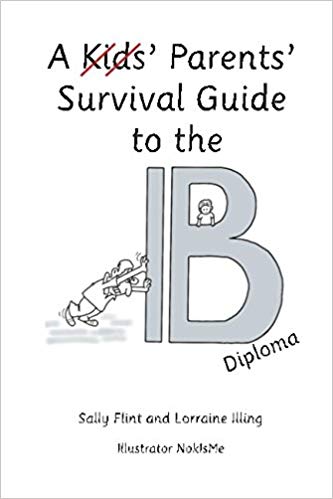Helping Children with Maths Anxiety

I was listening to Jenni Murray exploring Maths’ anxiety in a parenting podcast yesterday on Woman’s hour along with Lucy Rycroft-Smith, a research officer at Cambridge University’s Faculty of Education and its centre for Neuroscience. It was stated that on the podcast one in ten students between 8 and 13 years old suffer from Maths’ Anxiety. This can lead to a feeling of rage, despair and affect the very essence of a child’s sense of self-worth. Jenni informed me, via the airwaves, that she will no longer feel guilty for saying that she hated Maths at school, the message being that she had an unacknowledged anxiety that had affected her ability to do well.
It was an interesting topic for me to listen to, especially as Maths is not my youngest daughter Betsy’s favourite subject. (Understatement!) I got thinking about her own educational experience and how her attitude towards Maths has been affected by her family, friends and teachers. Actually that’s not quite true, let’s be honest, it mainly got me thinking about how I had affected her attitude towards Maths.
Solving Maths Problems
I’ve never labelled Betsy as having Maths’ anxiety, but thinking about it, that is exactly what she has been experiencing all these years. Not to make it all about me, but it’s actually myself I’d have labelled as having Maths’ anxiety – anxiety that she would pass her blooming Maths’ tests, They started unbelievably at the end of KS1 and are on-going with IB Maths just around the corner!
The good news is that, so far, Betsy has been successful, but it hasn’t been plain sailing. My anxiety has led me to micro-managing her Maths’ learning, thus probably exacerbating her original anxiety. Looking back, I’m wondering whether all those extra word-based Maths’ problems I foisted on her, plus requests to the teachers for extra homework questions to practise were that helpful. Also, pitching them at the level she was struggling at was probably pretty foolish and I am not so sure that comments such as, “Come on Betsy, it’s not that difficult if you really concentrate,” were constructive!
If I could change things, I’d probably skip the extra practice full stop. Tears and arguments do not a positive attitude create! Did it really matter that Betsy was in a lower set for Maths? Well I want to say, of course it didn’t, but I’m not sure it is that simple. Of course, children need to be in a set where learning is pitched appropriately and where they can be happy and confident and work to the best of their ability; (blah blah blah); a school isn’t, though, a utopia of good will. My hunch is that children’s pecking order and ranking amongst themselves, not only definitely exists, but can actually be partially determined by what ‘set’ they are in for different subjects. In a school where it is ‘cool’ to be ‘smart’, whether or not you are seen as being smart at Maths can be quite significant and thus consequently, to be low in the rankings, can in itself create Maths’ anxiety.
Putting peer and self-induced student anxiety aside for the moment, even when the kids were little I was very aware that eventually they would be examined externally using a traditional timed examination structure. Until this changes teachers and parents have the dicohtemy of having to teach within a system that fundamentally contradicts the values of education that many educators (and parents) believe in. Uniform and de-personalized tests are used for testing in an impersonal manner but one which will determine university placements. What room does this leave for nurturing individual strengths and aspirations in a subject like Maths?
Approaches to Teaching Maths
I imagine that being a Maths’ teacher might sometimes feels a bit like being Jekyll and Hyde. On the one hand Jekyll is nurturing, caring, helping the individual, but on the other hand Hyde, due to circumstances beyond control, is throwing the student to a pack of assessment-hungry lions! This goes back further than Secondary school. I think Betsy’s Maths anxiety was formed during the time that she (and I) perceived the need to obtain good Maths SATS results, which was for forefront in UK educational practice during her Upper Primary years. I also wonder if there is a link to the fact that all the touchy-feely stuff I so valued disappeared from reporting systems at about the same time. There was a lot of focus on the specifics of what she had and hadn’t mastered and little focus on ‘her’. Perhaps the current interest in wellbeing will change this.
In The Anti-Anxiety Curriculum: Combating Math Anxiety in the Classroom, Eugene Geist talks a lot about other factors leading to anxiety in Mathematics, particularly amongst girls, and how classroom environments can exacerbate it. If you’re interested you can read the whole paper here, My take away from reading the paper is that, for various reasons, girls are likely to feel more doubtful about the accuracy of their responses than boys and thus lose their Maths edge and that traditional test situations can exacerbate this. Who knows, but it makes sense. I can see now in hindsight, that for Betsy, the fact that she had a ‘specialist’ Maths’ teacher, rather than her regular class teacher, would have exacerbated her anxiety and make her less likely to contribute. This wouldn’t have been addressed as at Parents’ evening as progress in Maths was reported not by the Maths teacher, but second hand by the main teacher, so the nuances of stress and feelings of inadequacy in the classroom were not explored.
On the plus side, the anecdotes in Jenni Murray’s podcast of child-shaming and detention-giving do fortunately seem to be a thing of the past. If there is a problem in education causing Maths’ anxiety it is the ‘bigger educational system at fault, and not, in my experience, individual teachers. Whether SATS, IGCSEs or IB, it is impossible to escape the fact that having to comply with traditional examination structures and timed systems will likely have exacerbated, rather than relieved Betsy’s (and others) and my anxiety.
Anyway, hindsight is a wonderful thing and whilst long term, knowing the causes for something can prevent its re-occurence, right now, for Betsy, who is about to sit her IB Maths exams, managing that Maths anxiety is what matters. Back in Year 6 Mrs Parker taught Betsy Maths . She advised Bets to not panic and to believe in herself; so far this has been good advice. I once, with a colleague, Lorraine Illing wrote a whole book (illustrated very wittily by Duangport Turongratanachai) managing exam stress and other such IB issues. It’s available at Amazon and all good book shops, (!) and called A Parents’ Survival Guide to the IB. Perhaps I wil take a peep and see if we came up with any gems of wisdom for my next blog post on managing Maths’ anxiety, but in the meantime, thanks Mrs Parker, you were a fab teacher.
One last postscript, whilst Maths’ Anxiety has been forefront in my thoughts whilst writing this blog, a bigger anxiety has kept creeping in – does Maths’ Anxiety need an apostrophe or not? Grammar police, please help me.
